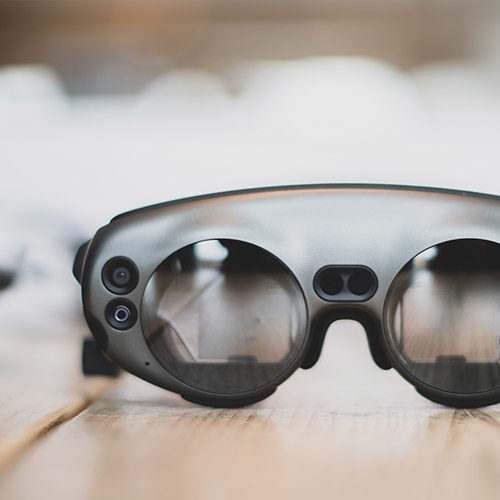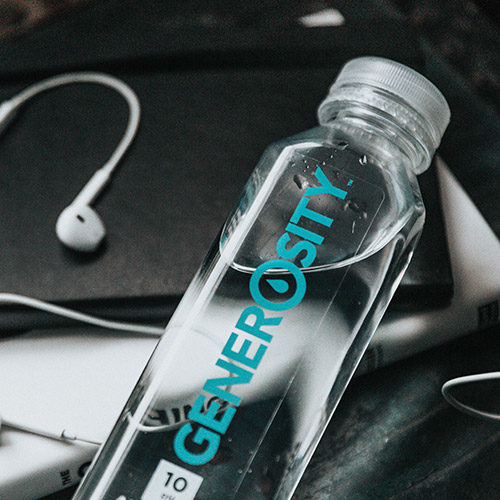What is a Buying Group?
Buying Groups, also known as Group Purchasing Organizations (GPOs) have been around for almost a century, and provide value to a number of industries, including Hospitality.
The concept behind Buying Groups is laudable – small, independently run businesses can combine their purchasing power to negotiate better discounts traditionally only available to major enterprises. By participating in a Buying Group, businesses can theoretically save on purchasing costs by ‘outsourcing’ their purchasing capabilities to a Buying Group.
It seems like a no-brainer, but research indicates there are a few key pitfalls to this business model when it comes to supplying a hotel retail effort, including free market independence, basic accounting and P&L tracking, and numerous restrictions that create barriers to obtaining the best pricing, technology and services once the GPO selects a vendor.
Group Purchasing Organizations bring advantages to buyers and vendors alike.
Vendors generally prefer to secure business with large customers but recognize the value of reaching a large number of small customers through one cohesive network. Vendors are willing to extend discounts and additional service levels to the Buying Group to gain access to their large networks of buyers.
This allows vendors to reduce their sales cycle and have a good forward view into demand – greatly impacting successful production and supply chain management.

Why GPOs are different from Buying Groups?
While some Buying Groups are co-operatives and run as a non-profit, others are very much FOR profit corporations – so the allowance offered by vendors is critical to the profitability of the Buying Group.
But vendors have a limited budget for discounts and promotions, so anything that goes into allowances to earn business through the Buying Group is no longer available to be used for product discounts and other promotions that would directly benefit the members being served.
Pros of a Buying Group
As a whole, Buying Groups benefit the smaller owner/operators more than the larger firms.
Larger firms traditionally have sophisticated purchasing organizations and greater buying power – and, therefore, have the ability to negotiate very good arrangements on their own with the vendors of their choice.
In this scenario, they are not locked into a single source supplier – one chosen by the Buying Group – but are free to negotiate with whoever best fits their purchasing needs on whatever terms make the most sense for their portfolio.
Additionally, since Buying Groups are structured to give all members a common price, larger owner/operators are offered the same pricing as smaller owner/operators, negating the normal competitive advantages that larger entities have in a free market.
All operators, large and small, forfeit many of the advantages of the free market when it comes to purchasing through the traditional Buying Group model.
While a Buying Group may be able to offer good ‘every day’ prices, most vendors do not have static pricing.
Just as hotels have sophisticated yield management programs for selling out inventory which results in price breaks and hot deals for their guests, the same is true for most vendors. Given the opportunity, vendors will offer promotions, discounts and closeouts to their customers as well as specially negotiated pricing in order to drive sales.
However, the vendors who participate in Buying Groups are often prohibited from offering discounts to members without approval from the Buying Group who commonly negotiates for a portion of the promotional dollars available that would otherwise go direct to the hotels. Even still, the programs must be offered to all members of the Buying Group and often do not allow for special volume deals or promotional programs to key accounts.

Cons of a Buying Group
Buying Group rebates are paid to owner/operators based on their spend with the contracted vendor as a percentage of their total spend in a category.
There are two potential problems with this scenario: one is that rebates come quarterly, sometimes annually, versus off-invoice. This results in cash flow going in the wrong direction.
Secondly, the process of accounting for rebates and applying them to individual hotel P&L lines (which are reported back to owners) is cumbersome and time consuming.
Another downside is that innovation is often stifled in areas of price, features and functions.
Once a vendor is locked in to what is typically a multi-year contract, the new vendor as well as the vendors that did not win the competitive bid, cannot introduce their products effectively to members of the Buying Group.
In competitive industries like the hotel industry every innovation, efficiency, price reduction or program makes a difference. Stifling innovation, variety and free market competitive pricing makes very little sense.
It is noteworthy that the practices of some of the largest Buying Groups in the country directly contradict the basic principles of free market economics resulting in numerous cases of anti-trust litigation – sparked not only by vendors who are ‘shut out’ from selling in a free market, but also by the buyers who would like to take advantage of specially negotiated discounts they no longer gave access to.
Hotel Buying Groups
Within the hotel industry, Buying Groups have been used effectively for Furniture, Fixtures and Equipment (FF&E) and for food service purchasing.
In those categories, certain products, such as linens, carpeting and mayonnaise by the gallon, may not see innovation for years and may make perfect sense to use a Buying Group to secure a long-term vendor contract and negotiate low prices on items that do not vary or require consistent updating and improvements.
However, most Buying Groups lock in a vendor for a whole category, such as Food Service or Hotel Retail, which is suboptimal on many levels.
Consider an owner/operator that is trying to distinguish itself with a super-premium retail offering of high-end ice creams, natural and organic snacks, and a substantial Quick Meal offering – but the foodservice buying group has contracted a Convenience Store distributor that offers low-budget fare more conducive to a Quick Mart or a 7-11 because they had aggressive pricing on Snicker’s Bars and Doritos.
The owner/operator has to make a choice – scrap the idea for a custom hotel pantry offering OR go around the contracted vendor and risk dropping out of a pricing or rebate tier because they didn’t reach the targeted spend set up by the Buying Group.
Neither choice is optimal.
In Hotel Retail, which covers hotel markets, pantries and gift shops, the disadvantages of group purchasing far outweigh the benefits.
Most Buying Groups rely predominantly on their Food Service vendor to supply a minimal variety of chips and chocolate bars as most broadliners do not have a significant variety of products properly packaged for resale.
The very nature of retail calls for a category management plan that includes a wide variety of top-selling and specialty items across all categories. The shopping experience in which a guest would only find a smattering of chocolate bars and chips is not very satisfying and the revenue reflected by hotels that take this approach confirms that dissatisfaction.
Buying Groups may contract a particular distributor which does carry a long line of products from a variety of vendors, but each of those vendors will be required to contract with and pay the allowance to the Buying Group – resulting in higher prices.
Research of one of the largest nationwide Buying Groups’ Retail Vendor showed that, on average, their prices are higher than other nationwide retail suppliers by 12% in the Hotel Retail categories.
Additionally, using a contracted distributor that has only regional coverage locks out the possibility of using other distributors to get coverage of an owner/operator’s entire portfolio. For this reason, it is nearly always the best choice to opt out of the Hotel Retail category when negotiating with a Buying Group when the goal is to truly drive revenue, profitability and guest satisfaction.
Certain hotel retail solution providers provide all the benefits of a Buying Group but without the downsides.
This new breed of companies negotiates low prices from manufacturers and distributors and passes 100% of all promotions, rebates and discounts directly to hotels, off-invoice. Companies like Source 1 Purchasing (www.source1purchasing.com) have evaluated the pitfalls of traditional buying groups and have made substantial adjustments to their programs to innovate the group purchasing experience – particularly for their hotel retail offering – to ensure that their members are reaping more of the benefits and eliminating the barriers and restrictions that contradict the buying needs of the members who select their program.
Group Purchasing Organizations have established themselves as an important resource in the purchasing sector. The leverage and purchasing power they offer small companies can be a tremendous asset. But it is important to consider all the group purchasing organization benefits and disadvantages involved when selecting a GPO.
You may be forfeiting as many benefits as you are receiving when restricting your purchasing flexibility to the many program restraints of a Group Purchasing Organization.
Janine Roberts, Director of Sales and Marketing for Tradavo, a retail services company specializing in design, optimization and supply needs of the industry. She works to improve retail profits and the automate management of hotel lobby shops. Janine developed and implemented the Retail Services element of Tradavo to provide hotels assistance in selecting, merchandising and effectively pricing inventory. She also created the highly successful Grand Opening Program to help general managers preparing for a grand opening and to launch their retail operation. Ms. Roberts can be contacted at 303-883-2335 or jroberts@tradavo.com Extended Bio…
HotelExecutive.com retains the copyright to the articles published in the Hotel Business Review. Articles cannot be republished without prior written consent by HotelExecutive.com.
MEDIA CONTACT:
BlueIvy Communications
561-310-9921
Melissa@BlueIvy.co


















